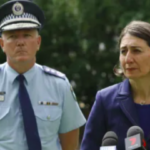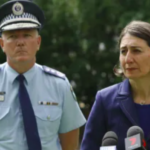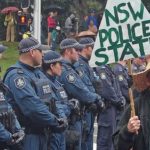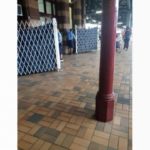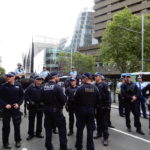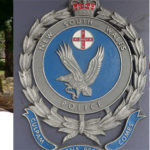Premier Freezes Public Sector Pay, Having Approved 15% Pay Rise to Police Commissioner
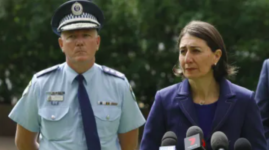
Despite having just recently approved a massive pay rise to the New South Wales Police Chief, equivalent to about 15% of his salary, The Berejiklian government is now proposing a wage freeze for public servants, including frontline health staff.
In a proposal put to Parliament, the government plans to freeze wages – freeing up $3 billion dollars due to the ‘economic cost of the coronavirus’ and because it is necessary to protect public sector jobs and create new ones.
There is little further detail about the planned savings, other than the Premier and Treasurer reiterating that it is ‘necessary to keep jobs.’
The economic cost of COVID-19
But so far, the bulk of the enormous economic ‘cost’ of coronavirus has been the burden of the federal government. The cost of JobKeeper and JobSeeker payments has come from the national purse. So too have the funds for ‘free’ childcare and the financial boosts for the health sector.
The states and territories have individually produced some initiatives at their own costs, but in New South Wales these are not overwhelmingly generous. Unlike most other states, there is no financial assistance for residential landlords and tenants affected by the crisis, although homeowners can apply for a land tax exemption over this period. Commercial landlords can also apply for some financial relief if they have a small business tenant in dire straits.
Without further detail it’s difficult to understand why there is money for a hefty salary increase for Mick Fuller, and a large budget to employ more police officers, but that the remainder of the public sector workers must wait 12 months to receive a pay rise.
Skewed priorities
On the face of it, it is just another example of the skewed priorities of the Berejiklian government which obviously values the work of police officers over health workers, which seems ludicrous at this time, considering that the coronavirus health crisis actually stopped the nation in its tracks for almost three months.
It’s also out of step with the sentiment of the majority of New South Wales residents, who would agree that doctors, nurses, paramedics, other frontline health workers and teachers most definitely deserve their annual pay rise at this time, given that they are risking their own health to care for others.
Figures from the end of April 2020 showed that 59 healthcare workers in New South Wales had contracted COVID-19, with the fear of getting sick simply adding to the enormous pressure they are already under, working in a health care system that is completely ill-equipped to handle the pandemic. At one point, media revealed that healthcare workers had resorted to shopping at Bunnings for their own personal protective equipment.
Some nurses have been abused in public. Teachers have turned up, even when kids were sent home unless they had to be at school. Transport workers too, have been at risk, keeping trains, buses and ferries operating over the past few months.
And we should not forget the firefighters who risked their own lives over Australia’s black summer, which took the lives of 25 people, with the Premier herself praising them in the aftermath, saying:
“As our state faced massive threat to life and property, brave people went out to face the danger head-on and they did not flinch” …
“Fatigued, traumatised and overwhelmed, they kept coming back, day after day, week after week, and month after month.”
It would seem that Ms Berejiklian believes that public praise will suffice instead of a pay rise.
Under the proposal every public servant will forgo a 2.5 per cent pay rise for 12 months, but would be accompanied by a guarantee of no forced redundancies for all employees who are not senior executives.
Hope for the medicos lies with Labor, the Greens and the Animal Justice Party which have all indicated that they would support a disallowance motion to overturn the pay freeze when Parliament actually returns. In March, NSW Parliament was adjourned until mid-September, except for urgent legislation, but the Berejiklian government will now move to increase the number of sitting days.
Disallowance motion
Many Acts of Parliament delegate to the executive government the power to make detailed rules and regulations (legislative instruments). Instruments made in this way are subject to the power of either House to veto or disallow them.
In most cases, within 15 sitting days after tabling a senator may give notice of a motion to disallow the legislative instrument. If the motion is agreed to, the instrument is disallowed and ceases to have effect. If a notice of motion to disallow a legislative instrument has not been resolved or withdrawn within 15 sitting days after having been given, the instrument is deemed to have been disallowed and automatically ceases to have effect.
The Hunters Shooters and Fishers party had originally said it would oppose the freeze, but is speaking with the treasurer Dominic Perrottet today.
Insult to the tireless workers
Both the Nurses’ and Teachers’ unions have indicated that they would consider industrial action at this time if the pay freeze goes ahead, and anyone can see the potentially disastrous effect of a strike by these workers right now with the virus still active and schools only just beginning to return to normal, with students having a chance to catch up after weeks of learning at home.


